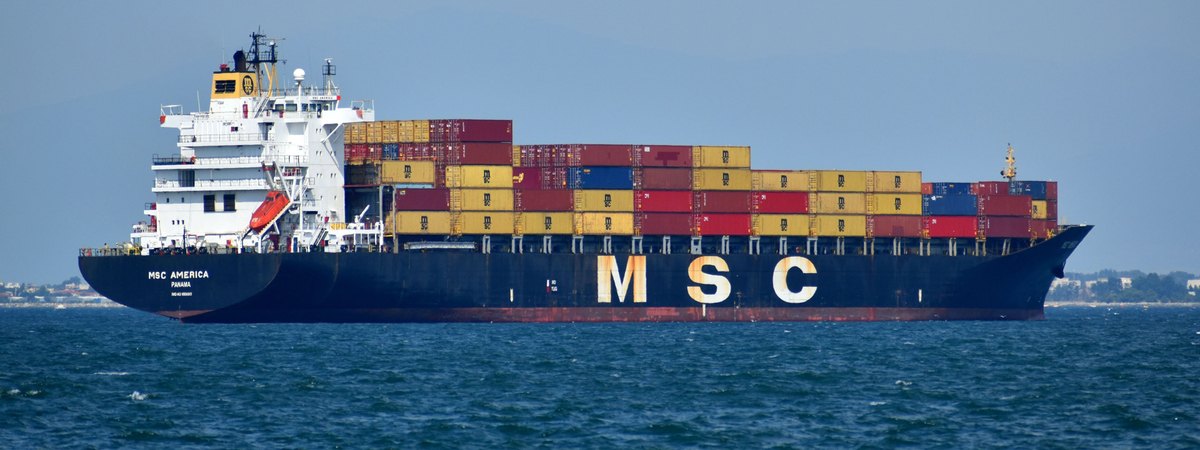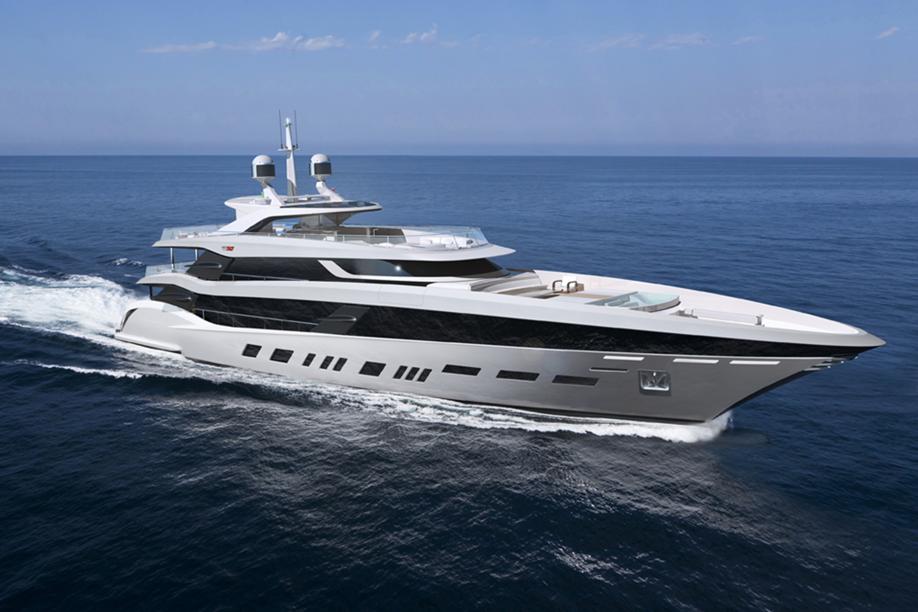Maritime law, often called admiralty law, is a specialized legal system that regulates activities within navigable waters. It touches on several important areas:
- Shipping: Everything from transporting goods to ensuring safety, handling collisions, and managing salvage.
- Marine insurance: Protecting maritime activities through insurance.
- Pollution prevention: Working to reduce pollution in our oceans.
- Customs: Managing the rules for goods entering and leaving ports.
- Port regulations: Overseeing port activities and ensuring safety.
Maritime law operates separately from national laws in many countries, guided by conventions set by the
International Maritime Organization (IMO). Organizations like the
International Maritime Rescue Federation (IMRF) also play a vital role in global maritime safety and rescue operations.
Get a Free Case Evaluation
Admiralty Law
Admiralty law relates to the seas, maritime commerce, or navigation. Admiralty law governs the transport of goods and passengers by water, vessel ownership and maintenance, crew employment, and marine insurance. It is a specialized area of law that includes national and international regulations, ensuring uniformity in maritime dispute resolution.
Key areas of admiralty law include:
- Personal injury claims: Under admiralty law, seamen, dock workers, and offshore employees can seek compensation for injuries sustained on the job.
- Jones Act claims: This law protects injured seamen, allowing them to sue employers for negligence leading to injury.
- Maintenance and cure: Employers must cover living expenses and medical treatment for injured maritime workers until they reach maximum medical improvement.
Longshore and Harbor Workers’ Compensation Act (LHWCA): This federal law benefits maritime workers not covered under the Jones Act.
Typically, admiralty jurisdiction covers cases where the claim arises from an accident on the
navigable waters of the United States and involves maritime commerce.
Admiralty jurisdiction also covers contracts concerning “the navigation, business or commerce of the sea,” and crimes committed on the high seas against a US vessel or a US citizen.
Furthermore, the United States Supreme Court has held admiralty jurisdiction is not limited to cases involving commercial vessels.
Simply put, accidents involving privately owned boats on navigable waters can be brought in admiralty courts, even if the boat was only used for a fun day trip with family and friends.
Other laws apply in cases involving longshoremen, stevedores, and harbor workers, which you can read about in our post:
Two Powerful Remedies for Injured Longshoremen and Harbor Workers.
A court has exclusive jurisdiction over a claim if it has the power to hear the claim to the exclusion of all other courts. Federal courts have exclusive original jurisdiction of all civil cases of admiralty and maritime jurisdiction, but individuals do not have to bring maritime cases in federal courts.
Long ago,
Congress issued the Judiciary Act of 1789 which gave state courts concurrent jurisdiction (meaning that a case can be brought in more than one court) to hear most types of admiralty actions as long as there is a remedy available under the common law.
In other words, state courts can hear maritime cases as long as the state court is capable of granting some relief to the parties that they wouldn’t necessarily have access to in the federal court system.
Characteristically, cases normally brought in state courts instead of federal courts are ones that involve tort actions or where a state court can get personal jurisdiction over the defendant.
There are a few
types of admiralty claims that a federal court has exclusive jurisdiction over and must hear, including the enforcement of a maritime lien, foreclosure on a preferred ship mortgage, limitation of the vessel owner’s liability, any proceeding where the ship itself is being sued (
in rem proceeding), and maritime suits against the government.
It is the choice of the parties to bring their case in state or federal courts. This choice is an important one because the parties may have different or more favorable rights under federal maritime law than they would have under state law or vice versa. When a case is brought in state court,
the court must apply substantive federal law and state procedural law.
This rule ensures that federal maritime laws govern all maritime cases but allow the states to hear maritime cases based on their own procedures and common law. This distinction is important because in many respects federal admiralty law differs from state law.
Possibly the most critical
difference between maritime law and common law courts is that admiralty judges only apply general maritime law and conduct trials
without juries.
For cases involving maritime law,
such as those involving an offshore injury, it is important to find a lawyer who
understands the intricacies of this complex area of law.
The
Houston maritime injury lawyers at
Armstrong Lee & Baker LLP are well-versed in the ins and outs of the laws that apply in maritime cases.
History of Maritime Law
Maritime law has ancient roots, tracing back to the early trading civilizations of the Mediterranean. Over time, it has evolved into a complex body of laws that are both national and international in scope. Today, maritime law includes various statutes, conventions, and treaties that regulate activities on the water. In the United States, maritime law is primarily federal, although state laws can also play a role in some instances.
Critical Components of Maritime Law
Several key components make up maritime law, each addressing different aspects of maritime activities and issues:
- The Jones Act: One of the most significant statutes within US maritime law is the Jones Act. It provides protections for seamen hurt in the course of their employment and allows injured seamen to sue their employers for damages resulting from negligence. This act is vital for ensuring maritime workers can seek compensation for injuries sustained at sea.
- Maintenance and cure: This doctrine requires employers to provide for an injured seaman’s basic living expenses and medical care until they reach maximum medical improvement. Maintenance covers daily living expenses, while cure covers medical expenses. This obligation exists regardless of who was at fault for the injury.
- Longshore and Harbor Workers’ Compensation Act (LHWCA): This federal maritime law provides workers’ compensation to maritime workers who are not seamen, such as longshoremen, harbor workers, and other maritime employees. The LHWCA offers benefits for medical care and rehabilitation services and compensation for lost wages due to injury.
Common Maritime Injuries
Maritime workers face unique hazards that can lead to serious injuries. These injuries often occur due to hazardous working conditions, heavy machinery, and unpredictable weather. Some of the most common maritime injuries include:
- Fractures: Broken bones can result from slip-and-fall accidents or being struck by heavy equipment, often leading to significant pain, mobility issues, extensive medical treatment, and difficulty returning to work.
- Head injuries: The movement of vessels and falling objects can cause concussions and traumatic brain injuries (TBIs), which may result in cognitive impairment, dizziness, headaches, memory loss, or long-term neurological complications.
- Burns: Hot oil, food spills, electrical malfunctions, and fires pose significant burn risks, causing severe tissue damage, nerve injuries, painful recovery, permanent scarring, or even life-threatening infections in extreme cases.
- Amputations: Severe injuries can necessitate the amputation of limbs, often due to machinery accidents, leading to permanent disability, psychological distress, prosthetic reliance, and major lifestyle or career adjustments.
- Chemical exposure: Offshore workers may be exposed to hazardous substances, leading to long-term respiratory problems, skin irritation, chronic illness, organ failure, or neurological damage affecting motor function and cognition.
- Back injuries: Heavy lifting, repetitive motion, and falls can cause debilitating spinal injuries, resulting in chronic pain, reduced mobility, nerve compression, herniated discs, or even partial or full paralysis.
- Falls: Slippery decks, unstable surfaces, and moving ships contribute to frequent falls, which increase the risk of sprains, fractures, concussions, internal bleeding, spinal cord injuries, and severe bruising.
- Hypothermia: Exposure to cold waters and harsh weather conditions can lead to life-threatening drops in body temperature, reducing muscle control, impairing judgment, and increasing the risk of drowning or cardiac arrest.
Maritime History
Maritime law has evolved over thousands of years, incorporating ancient laws, modern regulations, and international agreements. It is a comprehensive legal system that governs maritime operations, ensuring safety and fair treatment for seafarers.
Ancient Origins
- Rhodian Sea Laws (900 BC): These Mediterranean trade laws influenced Roman maritime regulations for centuries.
- European Laws of Oleron (1150 AD): Established shipowners’ responsibility for injured seamen’s medical care and living expenses.
Modern Origins
- English Admiralty Court: Shaped much of modern maritime law through legal precedents.
- Common Law: Played a significant role in the development of maritime regulations.
- The Judiciary Act of 1789 Granted U.S. federal district courts jurisdiction over maritime law cases.
International Agreements
- The Convention on the Law of the Sea: A United Nations treaty establishing global maritime regulations.
Current Status
Today, maritime law covers both public and private legal issues, combining national and international regulations under a unified legal framework. It is also referred to as admiralty law.
Maritime Injuries Stats
Maritime injuries remain a serious concern within the industry. From 2014 to 2022, an average of 753 maritime-related injuries occurred per year. In 2022, the number of reported injuries dropped to 597, the lowest recorded during that period.
Common Maritime Injury Causes
- Slips, trips, and falls: These are the leading causes of maritime injuries, often occurring due to wet surfaces, unsecured equipment, and unstable footing, leading to fractures and head trauma.
- Machinery and equipment accidents: Malfunctions or improper use of heavy machinery can result in severe crush injuries, amputations, or even fatalities, making workplace safety essential.
- Falls overboard: Often fatal, these incidents occur due to the lack of proper safety measures, including the absence of guardrails, poor training, or dangerous weather conditions.
- Ship fires: Engine failures, fuel leaks, and electrical malfunctions contribute to onboard fires, which can spread rapidly and cause severe burns or fatalities among crew members.
- Overuse injuries: Repetitive stress injuries are common among maritime workers who engage in prolonged physical labor, leading to chronic pain, reduced mobility, and long-term health issues.
Factors Contributing to Maritime Accidents
- Human error: Accounts for 75% to 96% of marine accidents, often due to misjudgment, fatigue, or distraction, making proper training and oversight crucial.
- Inadequate training and safety measures: Poor training can increase workplace risks, leaving workers unprepared to handle emergencies, machinery malfunctions, and hazardous conditions.
- Harsh weather conditions: Extreme weather can lead to vessel instability, loss of control, and dangerous working conditions that increase the risk of maritime accidents.
- Confined and crowded workspaces: Increased injury risks due to limited maneuverability, making it difficult for workers to respond quickly in case of an emergency or accident.
- Fatigue: Long working hours and lack of rest impact performance and safety, leading to slow reaction times, mistakes, and a higher likelihood of accidents.
- Inexperience: Insufficient training or new hires unfamiliar with maritime protocols often struggle with operating complex equipment or responding to emergency situations effectively.
- Reckless behavior: Drug and alcohol abuse contribute to unsafe working conditions, impairing judgment and coordination, which can lead to fatal accidents.
- Poor decision-making and negligence: Often a critical factor in maritime accidents, including failure to follow safety protocols, lack of maintenance, or disregard for hazardous conditions.
Maritime Accident Events
- Loss of control
- Loss of propulsion power
- Slipping, stumbling, and falling
- Collisions between vessels
Maritime workers who sustain injuries may seek compensation for medical expenses and lost wages.
Compensation Under Maritime Claims
Maritime law provides a framework for determining compensation in cases of maritime accidents. Whether you’re dealing with a personal injury, property damage, or a wrongful death, understanding how compensation works is essential in protecting your rights.
When it comes to maritime claims, compensation can cover a range of damages, including medical expenses, lost wages, pain and suffering, and property loss. The amount of compensation you may be entitled to will depend on various factors, such as the severity of the injury, the impact on your earning capacity, and the extent of the property damage.
Why You Need a Maritime Injury Lawyer
A maritime injury lawyer provides crucial assistance to those injured at sea. Their expertise is essential in
handling legal challenges and ensuring injured maritime workers receive the compensation they are entitled to.
Maritime injury lawyers assist clients in several ways:
- Investigating claims: They thoroughly investigate the circumstances of an injury, gathering evidence and interviewing witnesses to build a strong case.
- Understanding the Jones Act and other statutes: Lawyers help clients understand and utilize the protections offered by the Jones Act, LHWCA, and other relevant laws.
- Negotiating settlements: Attorneys negotiate with employers and insurance companies to secure fair settlements for their clients.
- Litigating cases: When negotiations fail, skilled maritime injury lawyers represent their clients in court, advocating for their rights and seeking just compensation.
Our Maritime Lawyers are Ready to Help
Maritime law is complex, encompassing many issues related to activities on navigable waters. Consulting a maritime injury lawyer is critical to handling all potential legal complications and helping you secure the benefits you deserve. You can schedule a free case evaluation by using our
online form or calling
(832) 402-6637.
Result
$72,500,000
$72,500,000 settlement for the family of an oilfield worker who lost his life due to negligence and unsafe working conditions.
Result
$35,800,000
$35,800,000 settlement for a refinery worker injured in a flash fire.
Result
$23,600,000
$23,600,000 judgment for mother and daughter severely injured in a passenger bus rollover crash.
Result
$10,000,000
$10,000,000 confidential settlement. Our client was injured in Dallas, Texas.
Result
$8,000,000
$8,000,000 settlement for the family of a tenant abducted and killed due to consistently broken security gates and lack of required 24/7 security at her apartment complex.
Result
$7,220,538.59
$7,220,538.59 settlement for a worker who suffered catastrophic injuries when a malfunctioning industrial press crushed their arm during routine work. The failure of safety sensors and lack of proper oversight led to a life-altering amputation.
Result
$6,000,000
$6,000,000 for a client who suffered internal organ injuries when she crashed a forklift after receiving inadequate training.
Result
$5,500,000
$5,500,000 for client who suffered surgical low back injury while lifting heavy equipment at work.
Result
$5,250,000
$5,250,000 recovered for an oil-rig floorhand who sustained injuries due to an equipment malfunction in cold weather.
Result
$5,000,000
$5,000,000 confidential settlement for construction worker and his family. Our client was injured in Cherokee County, Texas at a construction site. Both of his hands were amputated.
If you or someone you know has been injured in an offshore incident and needs to speak to an experienced maritime attorney, contact
832-402-6637 for a consultation regarding your case.




